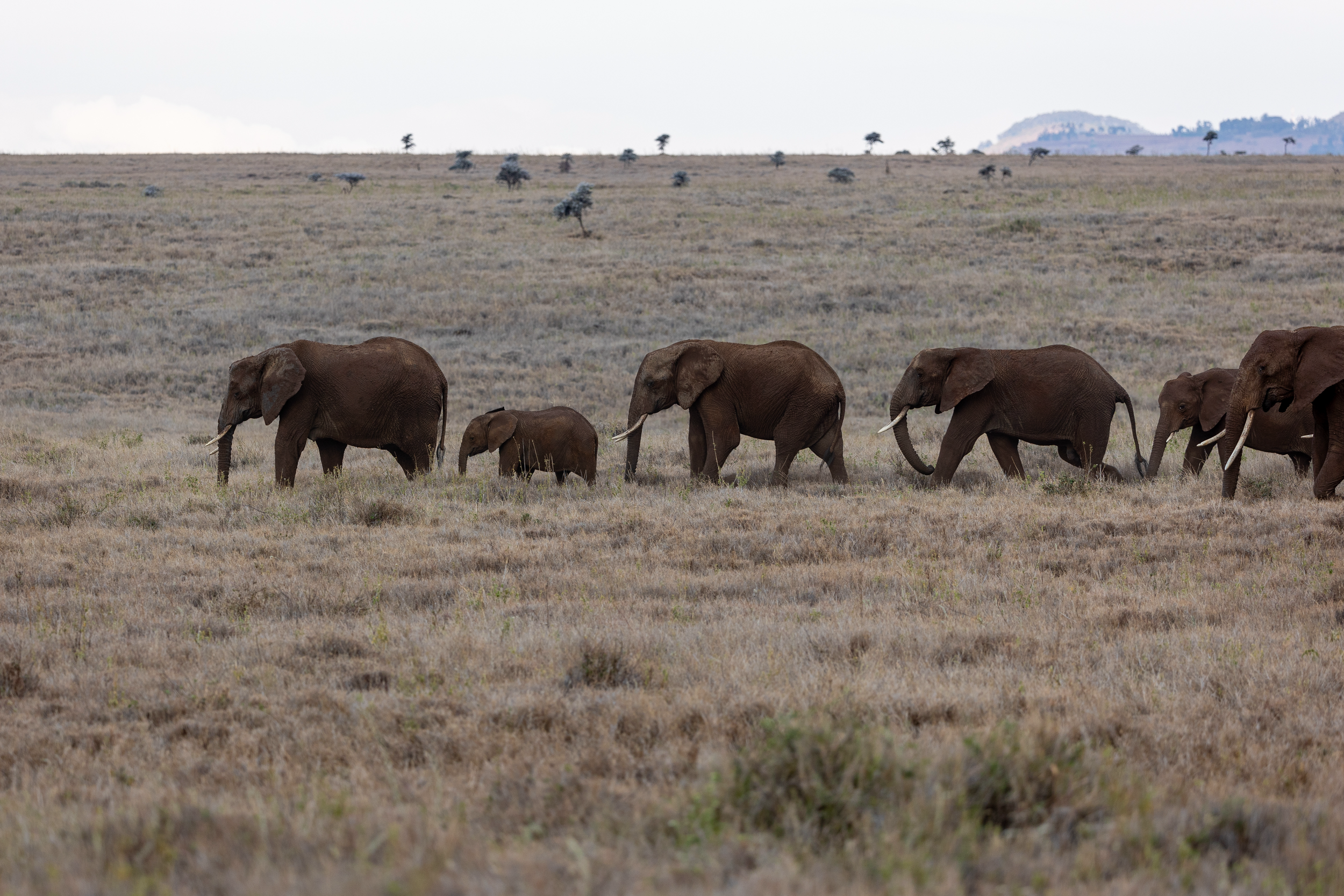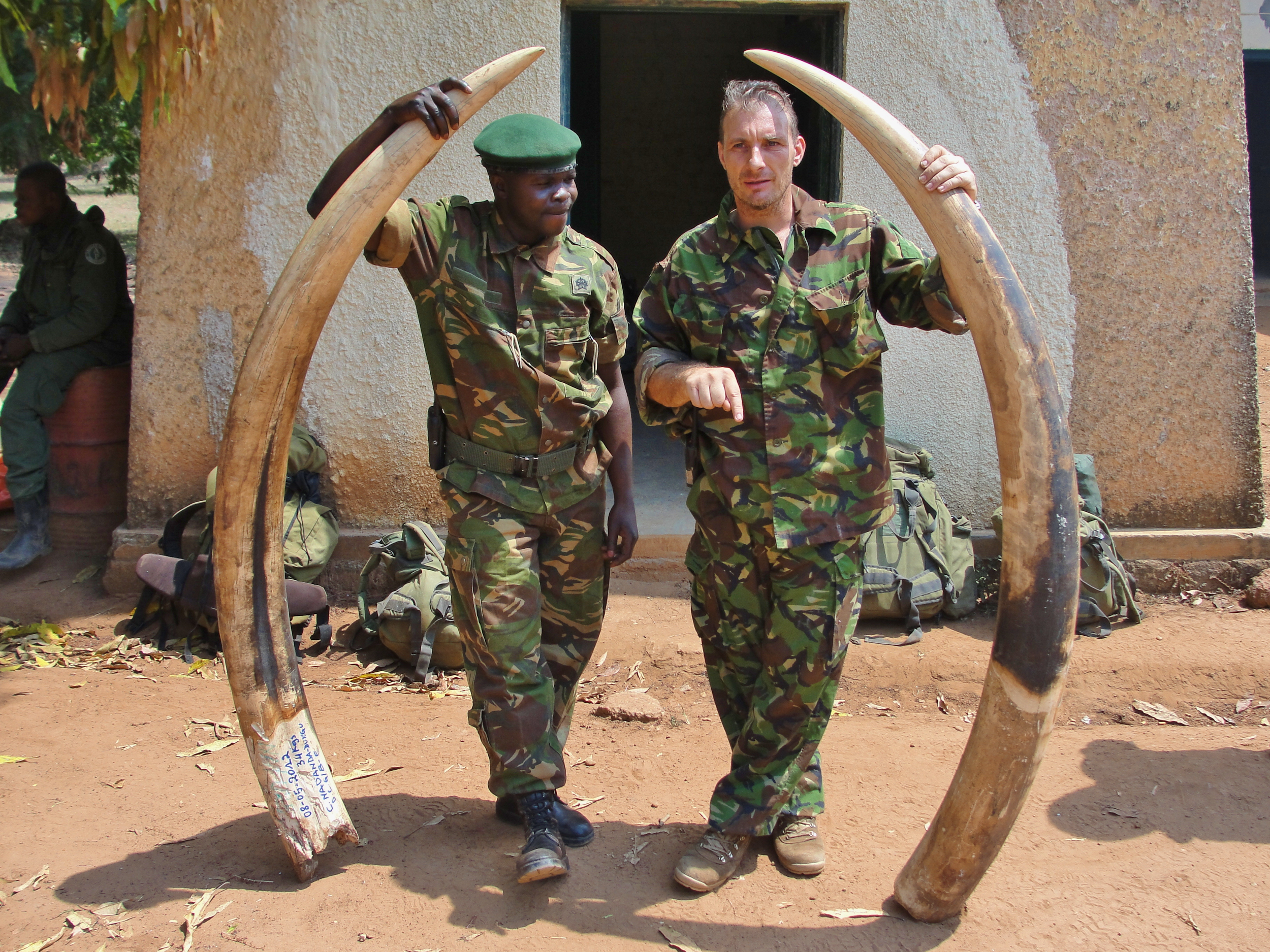Chad’s Zakouma National Park has transformed from a hotspot for poaching into a sanctuary for wildlife.
Tiang at Rigueik, Zakouma National Park. Inyathi. CC BY-SA 2.0.
Located in southeastern Chad, Zakouma is the nation’s oldest national park, established by the government in 1963. Situated south of the Sahara Desert and north of Central Africa’s fertile rainforest belt, it encompasses over 1,000-square-miles of grassland, savannah and open woodland. Its various diverse ecosystems provide an ideal habitat for wildlife. The park is home to 66 species of mammals and over 300 species of birds.
Elephant Herd. World Travel Adventures. CC0
Sign up for our newsletter here!Unfortunately for its inhabitants, the park’s location attracted more than just wildlife. In the 1970s, it was estimated that up to 22,000 elephants roamed Zakouma. In the early 2000s, those numbers were decimated by poachers. Arriving on horseback from Sudan, militant poachers and militiamen known as Janjaweed, famous for their role in the Darfur Genocide, targeted the rhinoceros and elephant populations for their ivory tusks. Armed with AK47 assault rifles, they terrorized wildlife and local communities, looting and raping in the villages and killing park rangers who attempted to defend the wildlife. Priced highly due to its use in expensive artworks and traditional medicines, ivory is incredibly valuable to criminal organizations, which use it to finance their operations. By 2010, 95% of the park's elephant population had been wiped out, and the rhinoceros population was nonexistent. The park’s future looked bleak.
Elephant ivory seized from poachers. Jonathan Hutson. CC BY-NC-ND 2.0
In 2010, with the local elephant population on the brink of extinction, Chad’s government signed a deal handing over the management of Zakouma to African Parks, a nonprofit organization that manages several national parks in Africa. Collaborating with local rangers and communities, the group has implemented conservation measures, including anti-poaching patrols, community outreach programs and infrastructure development. These have done much to restore wildlife and turn the park into a popular destination for ecotourists.
Sign up for our newsletter here!“There were times when I thought we’d have nothing left to protect and the life of a ranger here was very dangerous,” said Zakaria Hassane, who has worked in Zakouma as a park ranger since the 1980s. “There certainly weren’t any overseas visitors around. But today, it feels like the park and its wildlife, and the people who live here, can look ahead to a better future.”
Giraffe of Zakouma National Park. Fatakaya. CC-BY-SA-4.0
The park, which has since been nominated to be named a World Heritage site, has become the ideal travel destination for those looking to enjoy the beauty and diversity of Africa's wildlife. Zakouma's wildlife population has tripled since African Parks' takeover, and it is now home to one of the largest single herds of elephants in all of Africa. In 2013 there was only one elephant in Zakouma under the age of three. As of 2017, there were 85, and the population continues to grow.
Sign up for our newsletter here!Elephants aren’t the park’s only success story. Many other rare species, which suffer in other places from climate change, habitat loss and poaching have found their home in Zakouma. In 2018, black rhinoceroses were reintroduced to the park. Buffalo numbers are on the rise as well, having increased from about 220 in 1986 to over 15,000 today. Kordofan giraffes, whose numbers also suffered from poachers’ guns, have made an incredible comeback. The last census in the park, in 2021, put the population at around 1,500, which represents 50% of all Kordofan giraffes in Africa.
Serval Cat, Zakouma National Park, Chad. Michael Nichols. CC BY-SA 2.0
The park is home to several rarer species of small animals, including servals, aardvarks and pale foxes, that are difficult to find elsewhere. Lion, leopard and cheetah populations are on the rise. African wild dogs have also been observed passing through. Tens of thousands of birds of various species flock to the park’s wetlands, particularly black-crowned cranes.
Sign up for our newsletter here!Zakouma is one of the most successful conservation efforts in Africa. It also stands as an important example of how protecting wildlife can benefit local communities. Zakouma’s ecosystem is now the largest employer in the region, supporting small businesses and employing local residents as park rangers. Villages around Zakouma have been equipped with radios so that they can warn rangers when poachers are nearby.
African Parks uses revenue from tourism to fund park management and to pay for community outreach programs, such as by training teachers and improving classroom materials. They have supported the construction of over a dozen schools, and local children are often invited to visit the park and stay overnight for free.
TO GET INVOLVED
African Parks: African Parks is a non-profit conservation organization that takes on direct responsibility for the rehabilitation and long-term management of protected areas in partnership with governments and local communities. Its website includes links to donate or get involved with the organization.
Sign up for our newsletter here!Save the Elephants: Save the Elephants works to secure a future for elephants. Specializing in elephant research, it provides scientific insights into elephant behavior, intelligence and long-distance movements and applies this knowledge to the challenges of elephant survival and harmonious coexistence with humanity. The organization also helps provide people and communities living with elephants with protection and income. Save the Elephants' website provides information about how to support its cause.
Rebecca Pitcairn
Rebecca studies Italian Language and Literature, Classical Civilizations, and English Writing at the University of Pittsburgh. She hopes to one day attain a PhD in Classical Archeology. She is passionate about feminism and climate justice. She enjoys reading, playing the lyre, and longboarding in her free time.






